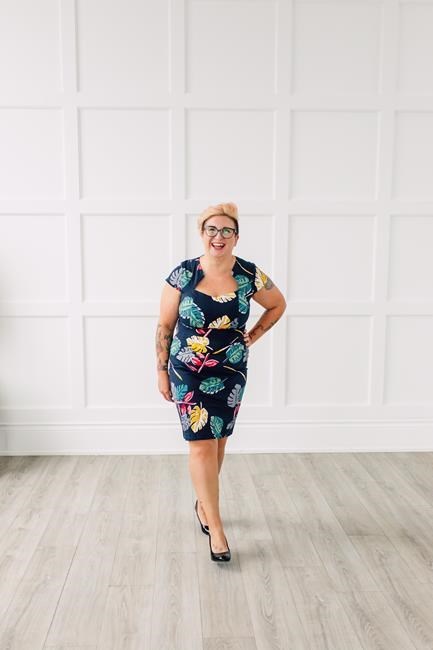TORONTO — Steph Davidson grew up with two sets of parents who approached their finances from opposite ends of the spectrum.
One set of parents was very frugal, only spending money on the most basic of necessities. While they did spend money on vacations, there were no brand names or extras at the house. The other set was more frivolous with their money and faced some financial challenges as a result.
“I’ve always struggled as an adult to find that middle ground between those two approaches, which was really, really restrictive or no rules whatsoever,” said the 39-year-old content and communications manager in Toronto.
Through most of Davidson’s adulthood, money felt like a scary concept.
“I would get my paycheque and I would buy things and I wouldn’t think a lot about the intention behind it or what I wanted my money to do. I think I kind of rebelled against any sort of structure around finances because my one set of parents were so restrictive.”
Like Davidson, many Canadians say their childhood experiences with money influence their attitudes toward money today. According to research from Meridian Credit Union, 55 per cent of Canadians said their childhood experiences with money had a lasting impact and 42 per cent said early financial experiences have left them feeling anxious and worried about money in adulthood.
“If you grew up in a household where there wasn’t enough money or your parents were always really frugal and worried about making ends meet, I think that translates into a [scarcity mindset], especially for women in their adult years,” said Janine Rogan, a Calgary-based chartered professional accountant and founder of the Wealth Building Academy
“In those situations, people might feel like there’s never going to be enough money, no matter how much they earn or how much they save. And that can be really toxic when it comes to actually being able to enjoy some of the money that you’ve worked so hard to earn.”
Alternatively, if someone grows up in a family where parents spend a lot of money and perhaps don’t discuss the debt they’re accumulating from overspending, children might believe that it’s OK if your rack up credit cards or don’t save for a rainy day, Rogan said.
There is a balance that has to be struck between saving money and spending money, she added. “We want to be careful that we’re not just hoarding money and never spending it.”
For adults living with trauma from extreme poverty in childhood, it can be helpful to see a psychologist or financial therapist to unpack those experiences, Rogan said.
If your relationship with money is less fraught but could still use some work, Rogan suggests taking a realistic, logical look at your finances.
“Some people are in better or worse financial situations. But, if you’re in an OK financial situation, I think [it’s helpful] to tell yourself that it’s OK to spend and enjoy money that you’ve worked hard to earn.”
Alternatively, if you’re struggling with compulsive spending, Rogan advised to start paying attention to why, when and how that happens, and to write that down so you can identify any patterns.
“If you’re always spending when you’re lonely or when you’re sad, maybe you can start to reframe that or tell yourself a mantra or phrase to get yourself away from impulse spending.”
Davidson was able to change her own money hang ups after taking a money mindset course with Brianna Firestone, the founder of the School of Betty. In the course, she was able to interrogate her emotions and beliefs around money.
“The big thing for me was that it took the fear out of money,” she said.
Davidson started creating a weekly money date to reconcile her budget, started speaking about finances with her partner, and raised her credit score — which had been one of her priorities.
“Now I have goals and jobs for my money, and I’m doing that without being restrictive like the one set of my parents,” Davidson said. “I can think about my future and look at my bank accounts and not have that anxiety or overwhelming feelings.”
This report by The Canadian Press was first published Nov. 30, 2021.
Leah Golob, The Canadian Press



